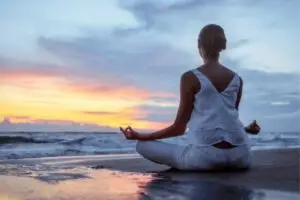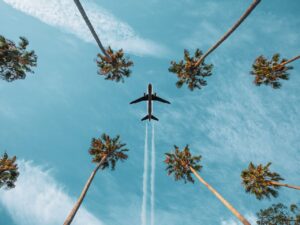Scroll down for english version
Wir sind nun kurz vor Abreise, aber ich wollte euch doch noch ein paar Worte dazu schreiben, wie schwierig oder einfach die ganze Organisation ist. Denn sicher kann man das nicht auf jedes andere Land adaptieren, aber einiges ist wohl immer gleich, wenn man ins Ausland geht.
Krankenversicherung & Co.
Manche Leute, die jetzt schon im Ausland leben, werden beim Wort Krankenversicherung die Nase rümpfen und sagen, dass man das nicht braucht. Man zahlt vor Ort einfach selbst beim Arzt und damit hat es sich. Ja, ok. Kann man machen. Mache ich definitiv nicht. Denn auch wenn das jetzt typisch deutsch und sicherheitsfixiert klingt: Wenn man einen Unfall hat, eine schwere Krankheit bekommt oder etwas anderes Gravierendes passiert, ist man froh, wenn man dann nicht auch noch Sorgen um die Kosten hat. Mit Kindern zählt das aus meiner Sicht doppelt.
Deshalb habe ich mich auf die Suche gemacht und alle Krankenversicherungen abgeklappert, die eine Auslandskrankenversicherung anbieten. Das sind gar nicht so viele. Man kann auch im Ausland schauen, mir wurden auch eine französische und einige englische ans Herz gelegt. Wichtig bei der Prüfung war für mich folgendes:
- Was umfasst die Krankenversicherung? Meist sind Zahnersatz, Vorsorgeuntersuchungen und Sehhilfen ausgeschlossen. Bei den meisten Krankenversicherungen geht es darum, einen Schutz zu haben für die Fälle, die ich oben beschrieben habe. Also eine Notfallversicherung.
- Wenn ich ohnehin nur eine Notfallversicherung bekomme, wie hoch sind dann die monatlichen Kosten für 4 Personen? Das richtet sich oft nach dem Alter der Versicherten. Kinder zahlen weniger, dann gibt es eine lange Phase gleichbleibender Beiträge, ab 60 oder 65 wird es dann signifikant teurer.
- Wie wird ein Schaden gemeldet und wie erhalte ich mein Geld zurück? Auch hierauf habe ich geschaut: Mit wem kommuniziere ich und auch auf welcher Sprache? In Notfällen kann das nicht ganz unwichtig sein, besonders wenn es um medizinische Fachausdrücke geht.
- Und dann habe ich auch auf die Laufzeit geschaut. Manche Versicherungen kann man nur für zwei Jahre abschließen, andere bis fünf Jahre.
Wir haben dann eine sehr günstige und aus meiner Sicht gute Versicherung gefunden – wie gut sie ist stellt sich ja meist erst heraus, wenn man den ersten Schadensfall hat. Ich werde berichten.
Visum / Einreise und Aufenthalt
In Kenia gibt es drei, zukünftig vier verschiedene Möglichkeiten für ein Visum, das über den Touristenaufenthalt hinaus geht. Das erste ist ein Arbeitsvisum. Um dieses zu erhalten braucht man einen Job vor Ort. Die zweite Möglichkeit ist ein Investmentvisum. Voraussetzung dafür ist ein Investment im Land innerhalb der ersten 2 Jahre im sechsstelligen Bereich. Die dritte Möglichkeit ist ein Retirement-Visum. Dies kann schon ab einem Alter von 35 Jahren beantragt werden. Man muss ein regelmäßiges Einkommen nachweisen, darf aber im Land nicht arbeiten. Gerade wird auch an einem Visum für „Digitalnomaden“ gearbeitet, das ist aber noch nicht beschlossen. Dieses wird dann wohl ermöglichen, im Land zu leben und für Firmen im Ausland zu arbeiten.
Der Umzug itself
Wie kriegt man seinen ganzen Kram umgezogen? Diese Frage ist natürlich sehr damit verbunden, was man hat und wie man umzieht. Bei uns ist es so, dass wir keine Möbel mitnehmen werden. Daher war die Frage relativ schnell beantwortet: Wir werden erst einmal mit Koffern umziehen, in einem AirBnB starten und dann vor Ort nach einem Haus suchen. Aber dann steht die nächste Frage an: Wohin mit dem ganzen Kram in der jetzigen Wohnung? Und will man wirklich alles neu kaufen vor Ort oder doch noch Kartons hinterherschicken? Wir sind tatsächlich immer noch unschlüssig. Aktuell sind die Preise für Container aufgrund der unsicheren Lage für Schiffe rund um das Horn von Afrika stark gestiegen, da viele Reedereien entscheiden, den langen Weg um das Kap zu fahren. Das heißt, wir warten erst einmal ab und schauen, wie sich alles entwickelt, was man vor Ort bekommt und was von hier aus mit muss. Das heisst aber auch, gut zu packen, denn die Dinge, die wir doch noch holen wollen, müssen verpackt, gemessen und gewogen sein, so dass sie ggf. jemand anderes versenden kann. Das hält uns auf Trab. Außerdem ist es wichtig, alles gut zu dokumentieren, was darin ist. Nicht nur für uns selbst ist das wichtig, auch der Zoll will wissen, was wir einführen. Dinge für uns zum täglichen Gebrauch sind zollfrei. Man darf gespannt sein, wie es laufen wird.
Abflug
Für den Flug nach Nairobi haben wir alle pro Person 2 x 23 kg Gepäck im Flugpreis inklusive plus Handgepäck. Dazu haben wir 2 Koffer zugebucht und noch ein Teil Sportgepäck. Ich habe keine Ahnung wie wir diese Berge von Koffer durch den Flughafen bugsieren werden. Wenn ihr also am Berliner Flughafen eine Familie seht, die eine lange Reihe von Koffern hinter sich her zieht: Das sind wir! Keep your fingers crossed!
english version
We are now about to leave, but I wanted to write you a few words about how difficult or easy the whole organisation is. You certainly can’t adapt this to every other country, but some things are probably always the same when you go abroad.
Health insurance
Some people who are already living abroad will turn up their noses at the word health insurance and say that you don’t need it. You just pay the doctor yourself when you get there and that’s that. Yes, ok. You can do that. I definitely won’t. Because even if that sounds typically German and safety-orientated: If you have an accident, get seriously ill or something else serious happens, you’re happy if you don’t have to worry about the costs. In my view, that counts double when you have children.
That’s why I went in search of all the health insurance companies that offer international health insurance. There aren’t that many of them. You can also look abroad, I was also recommended a French and some English ones. The following was important for me during the check:
- What does the health insurance cover? In most cases, dental prostheses, check-ups and visual aids are excluded. Most health insurance policies are about having cover for the cases I described above. In other words, emergency insurance.
- If I only get emergency insurance anyway, what are the monthly costs for 4 people? This often depends on the age of the insured persons. Children pay less, then there is a long phase of constant premiums, from 60 or 65 it then becomes significantly more expensive.
- How is a claim reported and how do I get my money back? I also looked into this: Who do I communicate with and also in what language? This can be important in emergencies, especially when it comes to medical terminology.
- And then I also looked at the term. Some insurance policies can only be taken out for two years, others for up to five years.
We then found a very cheap and, in my opinion, good insurance policy – you usually find out how good it is when you have your first claim. I will report back.
Visa / entry and stay
In Kenya there are three, in future four different options for a visa that goes beyond a tourist stay. The first is a work visa. To obtain this, you need a local job. The second option is an investment visa. The prerequisite for this is a six-figure investment in the country within the first two years. The third option is a retirement visa. This can be applied for from the age of 35. You have to prove that you have a regular income, but are not allowed to work in the country. A visa for ‘digital nomads’ is also currently being worked on, but this has not yet been finalised. This will probably make it possible to live in the country and work for companies abroad.
The move itself
How do you get all your stuff moved? This question is of course very much linked to what you have and how you move. In our case, we won’t be taking any furniture with us. So the question was answered relatively quickly: We will first move with suitcases, start in an AirBnB and then look for a house locally. But then the next question arises: Where to put all the stuff in the current flat? And do we really want to buy everything new on site or send boxes after all? We are actually still undecided. At the moment, container prices have risen sharply due to the uncertain situation for ships around the Horn of Africa, as many shipping companies are deciding to take the long route around the Cape. This means that we will wait and see how everything develops, what we can get locally and what we have to take with us from here. But that also means packing well, because the things we still want to get have to be packed, measured and weighed so that someone else can send them if necessary. That keeps us on our toes. It’s also important to keep good records of everything inside. This is not only important for us, customs also want to know what we are importing. Things for our daily use are duty-free. It will be interesting to see how things go.
Departure
For the flight to Nairobi, we all have 2 x 23 kg of luggage per person included in the flight price plus hand luggage. We also booked 2 suitcases and some sports baggage. I have no idea how we will manoeuvre these mountains of suitcases through the airport. So if you see a family at Berlin airport dragging a long line of suitcases behind them: That’s us! Keep your fingers crossed!




